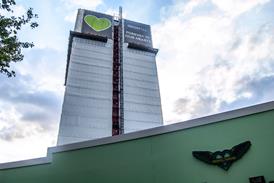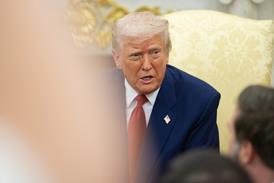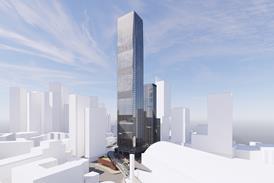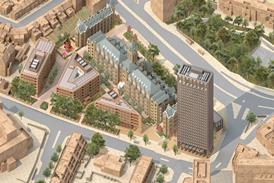Inquiry chair ‘surprised’ by application from Studio E and others for privilege against self-incrimination
Update: Architect Studio E is one of parties that have applied for immunity from prosecution. This information was not in Moore-Bick’s verbal statement this morning but is contained in a document since made available on the inquiry website.
The application argues that such a procedure is common practice in public inquiries.
Extracts from the application:
“Since the conclusion of the phase 1 hearings many witnesses to be called in phase 2 have been interviewed, or invited to attend an interview, under caution by the Metropolitan Police (and some maybe re-interviewed during the course of the second part of the inquiry) as the criminal investigation into the fire at Grenfell Tower continues in parallel with your investigations. The nature of the police investigation is very broad in scope and is concerned with numerous potential offences, ranging from regulatory breaches to the most serious of criminal offences, all of which carry potential custodial sentences.
“In furtherance of the primary purpose of the public inquiry – namely to fully examine the matters set out within the terms of reference and the table of issues –we collectively write to request that you seek an undertaking from the attorney general preventing the use of evidence given by witnesses to the public inquiry against them in any future criminal proceedings.
“Plainly, without such an undertaking witnesses will be lawfully and reasonably entitled to rely on the privilege against self-incrimination and to refuse to answer any question if to do so would tend to expose them to proceedings for a criminal offence.”
And:
“Seeking an undertaking from the attorney general is an established way by which witnesses are able to give full and frank answers and permits the terms of reference of a public inquiry to be fully investigated without delay and disruption to proceedings. Whilst their precise terms have varied, undertakings from the attorney general are very common in public inquiries. Examples include the Stephen Lawrence Inquiry, the Bloody Sunday Inquiry, the Ladbroke Grove Inquiry, the Baha Mousa Inquiry, the Al Sweady Inquiry,the Azelle Rodney Inquiry, and the Undercover Policing Inquiry.”
Several key witnesses called to give evidence at the public inquiry into the Grenfell Tower fire next week have applied for immunity from prosecution.
Witnesses from cladding subcontractor Harley, main contractor Rydon and the tower’s tenant management organisation (TMO) last night made an application to claim privilege against self-incrimination as a reason for not answering questions.
They have asked inquiry chairman Martin Moore-Bick to apply to the attorney general “for an undertaking that nothing said by a witness in answers to questions in the inquiry will be used in furtherance of a prosecution against them, thereby giving them complete freedom to tell the truth without concern for the future”.
Moore-Bick told the hearing today: “An application was made last night by a number of counsels for various core participants including among others Harley, certain employees/ex-employees of Rydon and the TMO as well as some others.”
Moore-Bick added: “This development has caused me a little surprise because hitherto there has been the fullest cooperation with the inquiry both in the form of giving written statements and in the provision of documents and no one so far has sought to avoid doing that or to answer any of our questions on those grounds.”
The announcement delayed the start of today’s hearings as Moore-Bick left the room to give the assembled lawyers time to discuss the development, with the applications to be considered tomorrow.
>> Also read: Grenfell Inquiry: Studio E questions expert architect’s competence
Privilege against self-incrimination protects a person from being required to answer questions “if to do so truthfully might expose him or her to a risk of prosecution”.
The witnesses who have applied for protection were involved in the design and choice of the materials which have been blamed for causing the fire which killed 72 people.
Yesterday, the inquiry heard emails which showed the architect, contractor, façade specialist and fire engineer working on the refurbishment of Grenfell Tower knew that the cladding would fail in the event of a fire.
















3 Readers' comments